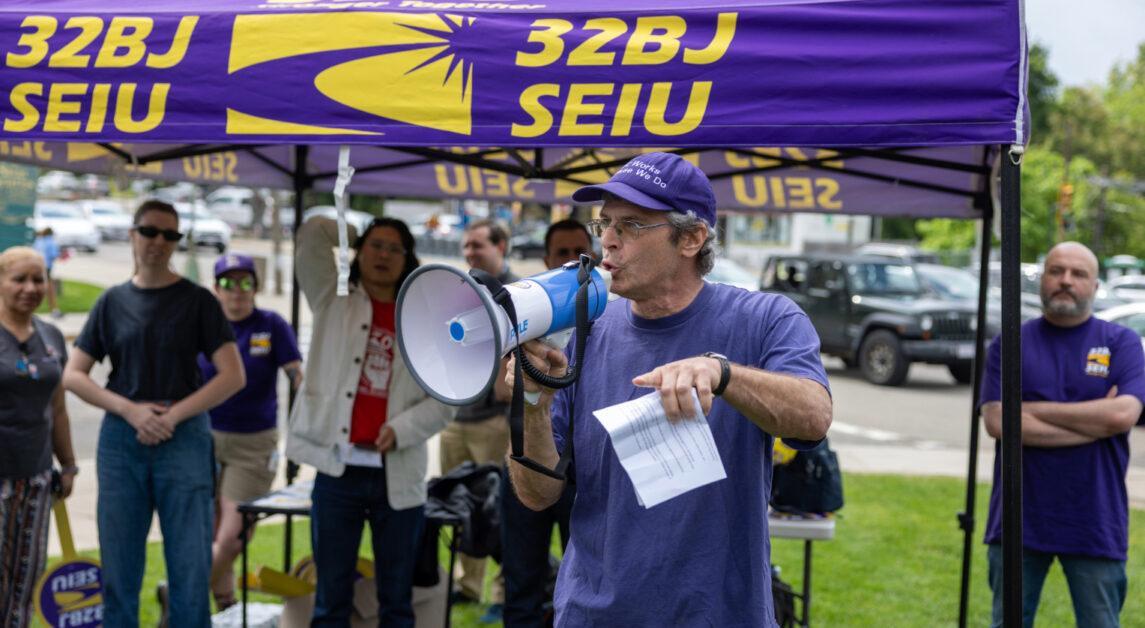A friend of mine, on his first visit to Boston College, said that the place resembled a kind of academic “eugenics camp”-filled with healthy, eager, gifted, energetic, well-scrubbed, “beautiful” people. And my friend had a point; there is a lot of obvious beauty, health, and energy on display here. But when I think about what’s most “beautiful” at BC, my mind goes immediately to the work that’s been done-for many years, day in, day out, without much fanfare-at the Campus School. There, in the midst of so much wealth, privilege, material goods, and trendy chic-that is to say, in our very midst- you’ll find severely handicapped and impaired young people who haven’t been blessed as we’ve been blessed. One of these people is my cousin Christopher.
The doctors said that Christopher, so seriously disabled as he was, would never be able to walk. I’ll never forget the day I saw him walking along the old “Dust-Bowl” with one of his “buddies”-one of the student volunteers at the Campus School. What made that scene so impressive to me wasn’t just that my little cousin, against all medical predictions, was walking on his own. It was more than that. Christopher, with his student-volunteer “buddy,” was there on the Dust-Bowl walkway, surrounded by our typical undergraduates relaxing on the grass, laughing, reading, playing frisbee, whatever. But he belonged. That was the point. He wasn’t some embarrassing intrusion into “normal” campus culture. He was part of that culture. His presence, and the presence of the other children at the Campus School, was BC’s way of saying “no” to a world that increasingly measures human worth by achievement. Whatever appearances to the contrary, however much some may see the handicapped as worthless drains on ever-diminishing resources, BC had made it part of its mission to give witness here, at its center, at its heart, that these children have a real and even special dignity; and that we are made better by having them with us, by recognizing their dignity, not just in words, but in deeds.
Now we’re told that the Campus School may be closing. We’re told that a hospital setting with professional staff will be better for the children; that the proposed facility has more room; that it’s a scant three miles from campus. And so forth.
I don’t doubt the sincerity of people who say these things. And there’s some truth in what they say. But at the very least they should ask themselves: How come those most intimately involved in the day to day care of these children-the staff, the volunteers, the “buddies”-how come they see the moving of these children to another facility and the closing of the Campus School as a disaster both for the children and also-most especially-for BC?
As one faculty member (not a Christian believer, by the way) told me: “When I see those white ambulance-vans coming at 3 p.m. to make their pick-ups from the Campus School, they’re like people lining up to receive Communion.” What he meant was this: The presence of those kids transforms this campus in something like the way the Eucharist transforms a mere room into a holy place, a place where God is concretely present among us. And so the loss of these handicapped kids will deprive BC-will deprive us all-of their uniquely transforming presence. But they in turn will also be deprived-of the incredible attentiveness, care, devotion, and love that their presence here has inspired. That is why some of us have raised our voices against what the University may be about to do.
I don’t know what BC will be gaining by the closing of the Campus School. But it can’t be worth more than what we will surely all be losing.
Rev. Ronald K. Tacelli, S.J.
Associate Professor of Philosophy







